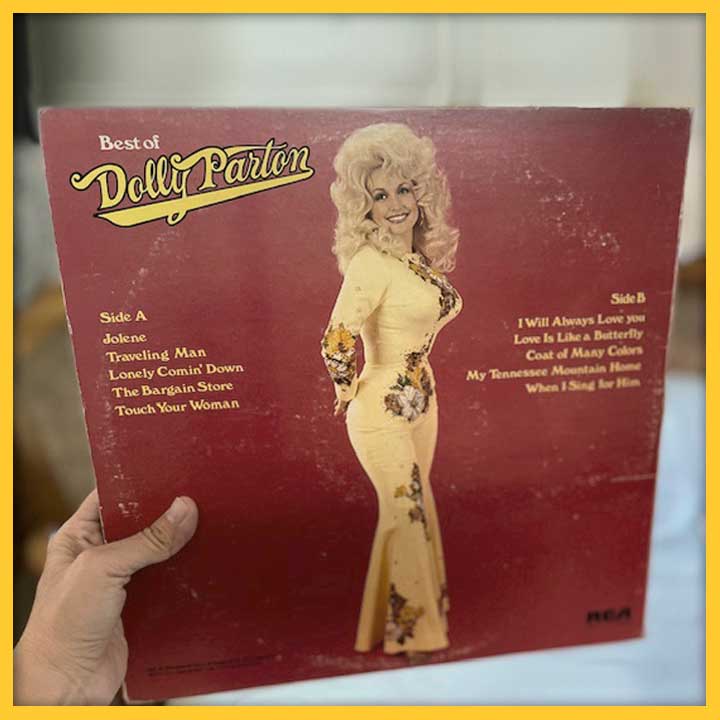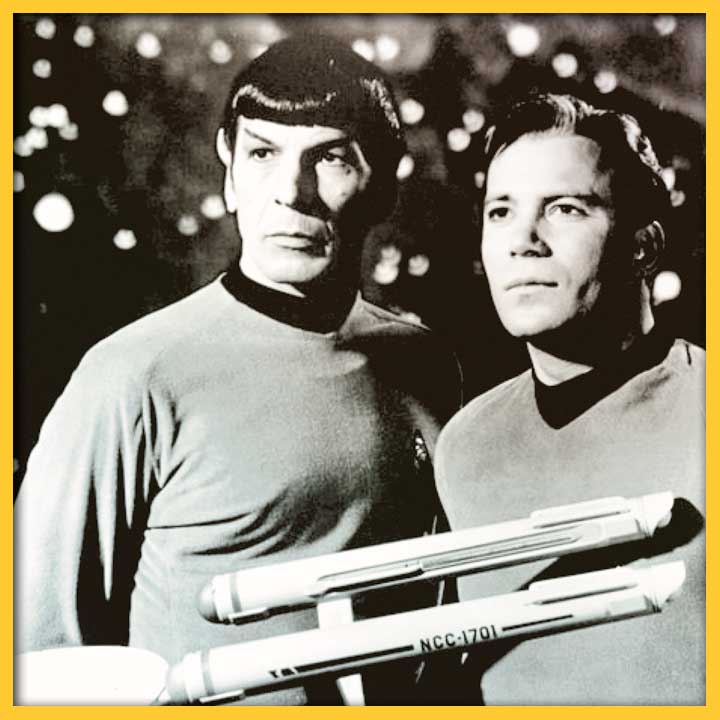
COMO QUE DOLLY PARTON?!
As a young girl growing up in rural New Mexico, I’d sift through Mama’s record collection, often landing on what became one of my favorite albums.
Author holding a piece of history, The Best of Dolly Parton record album. Photo courtesy of Leeanna Torres.
SHARE:
“Workin’ 9 to 5…,” sings my little boy, out loud while I cook and he draws in the kitchen; only seven years old and he already has a Dolly Parton song stuck in his head. “…what a way to make a living…” continues his singing, and I smile not only because he knows all the words, but because he has no idea how much the lyrics, the song, the music, and the artist herself have meant to me.
To the adult version-of-myself, admitting I love Dolly Parton’s music and image may seem like a small thing, but here’s a secret, una verdad (a truth) – it’s not really a small thing. And listening to my boy singing a Dolly Parton song on an ordinary day means more than anyone will ever know.
To the child version of myself, I’m still sitting on the floor of Rio Grande Elementary’s library floor, legs crisscrossed, seated amongst classmates, quiet, hot-faced, and embarrassed.
As a young girl growing up in rural New Mexico, I’d often sift through Mama’s record collection, landing on what became one of my favorite albums. Along with albums of Cornelio Reyna and Crystal Gale, there was, Dolly Parton. Mama’s album – The Best of Dolly – still had the sticker from her thrift-store purchase.
As a little girl I’d spend hours looking at Dolly’s album cover while Mama kept busy in the kitchen, making tortillas & beans, the clear sound of beans cooking inside the pressure cooker, it’s sound – pssssssssst – like white-noise in the background.
The album’s Side A & Side B, I loved them both, never deciding which was my favorite – the lonely chords of “The Bargain Store”, or the sentimental “In My Tennessee Mountain Home.” I was also mesmerized by Dolly’s outfits pictured on each album side. In one photo she wore a red handkerchief gracefully holding her hair. The other photo showed her standing in a yellow-once-piece flowered-suit.
As a little girl, I knew her only by this album cover, while the rest of the world seemed to focus just on her physical looks, I sensed in her a deep genuineness. Or at least I imagined it this way.
Mama ran the vacuum and dusted the living room while the Dolly Parton album played, side A, side B.
One week while in First-Grade, I discovered a book about Dolly Parton in the school library. Excitedly I checked out the book, rushing home to compare the photos in the book with the photos on the album cover. I loved Dolly’s eccentricity! I loved her showy outfits and big bold hair.
I loved her not just for her voice and songwriting, but maybe before anything else, I loved her smile captured on that album cover, so confident yet so sweet.
When it was time to return the book, and the librarian called out the title, “Dolly Parton…who has the Dolly Parton book?” I heard the children around me snicker, the boys especially, their minds on Dolly’s big chest rather than her sentimental songwriting. The librarian called out again, louder this time, “Dolly Parton, who checked out the Dolly Parton book and needs to return it?” More snickering. No one spoke up.
I was too embarrassed to speak up, to admit I’d checked out the book, shame overcoming me suddenly by the snickering of fellow-classmates around me. No one else seemed to like Dolly like I did.
The librarian asked again, this time more frustrated. A boy among our student crowd all seated on the floor taunted “Oh, Dolly Parton,” and he puffed out his chest, as though he were a girl, and twisted his torso, motioning a movement of large, shaking breasts. All the children laughed.
I remained silent, holding Dolly’s book close to my stomach, arms crossed over it so no one would see.
Why couldn’t I admit I liked Dolly and her music? Where was the root of my shame? As a child I was naïve, shy, weak. Why couldn’t I admit I liked Dolly and her music?
I think about this incident 30 years later. A little-brown girl who listened to and loved Dolly Parton’s music as much as I did Las Hermanas Huerta or Cornelio Reyna. In my life, there was room for both, if only I’d admit it.
Today, when I hear a Dolly song, I dance or sing along, and simply enjoy the music without any little-girl-shame. I am now bold enough to love what I love, listen to what I want to, and more importantly, admit to the joy of the things I enjoy, whether others agree or not. This is not an easy or obvious journey for some of us. For some of us it just takes time.
So when my own little-boy sings a Dolly Parton song, fearless and full of a playful joy he does not yet recognize, it’s then I begin to sing along with him. “What a way to make a livin’…” sings the chorus. And after we’ve finished the song, my boy asks, “Mama, why do you like Dolly so much?” my reply is simple, instant, and strikingly confident, “I just do…!”
PASA POR AQUÍ
ADDITIONAL BLOG ARTICLES

SPACESHIPS, RAY GUNS, AND LIFE LESSONS
By Melinda Snodgrass
“science fiction allows you to discuss difficult and fraught topics in what is a safe space and at arm’s length.”

LITERATURE AS GUIDEPOSTS ON MY IMMIGRANT JOURNEY
By Kei Tsuzuki
“What I have learned from books is that there is no one story that explains the world to us or captures our identity entirely. There is power in the specificity of each of our stories…”

A DIFFERENCE-MAKING BOOK
By Richard Etulain
“Many authors hope their histories, novels or other writings will make a difference — that their works will catch readers’ attention and influence their thinking and actions.”
SHARE:
DISCLAIMER:
Any views, findings, conclusions or recommendations expressed in this blog post/article does not necessarily represent those of the New Mexico Humanities Council or the National Endowment for the Humanities.
ABOUT THE AUTHOR:

LEEANNA TERESA MARTINEZ Y TORRES
L.T. Torres is a native daughter of the American Southwest, with deep Indo-Hispanic roots in New Mexico. She has worked as an environmental professional throughout the West since 2001. Her creative non-fiction work has been published in Blue Mesa Review, Tupelo Quarterly, and is forthcoming in an anthology by Torrey House Press (2021).
